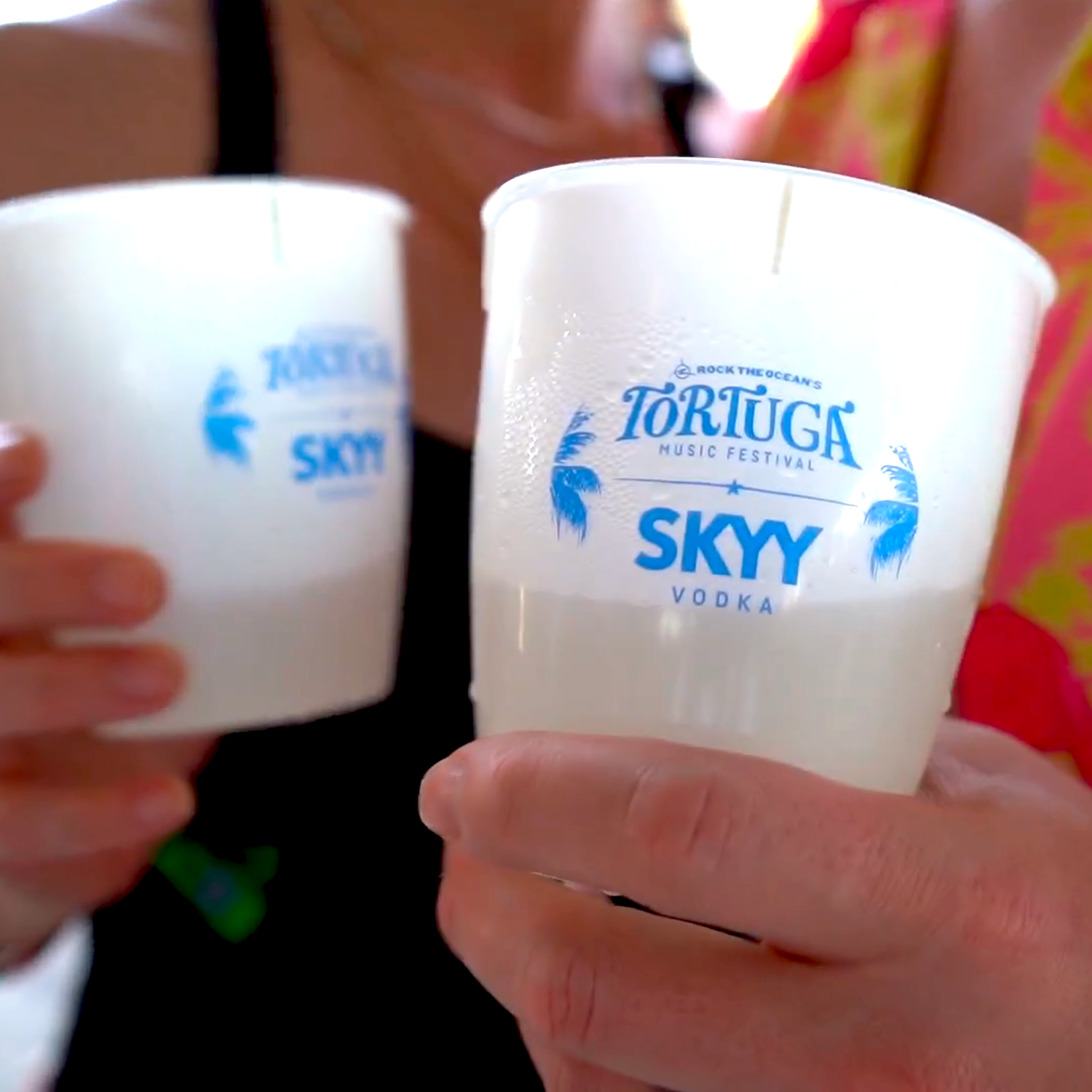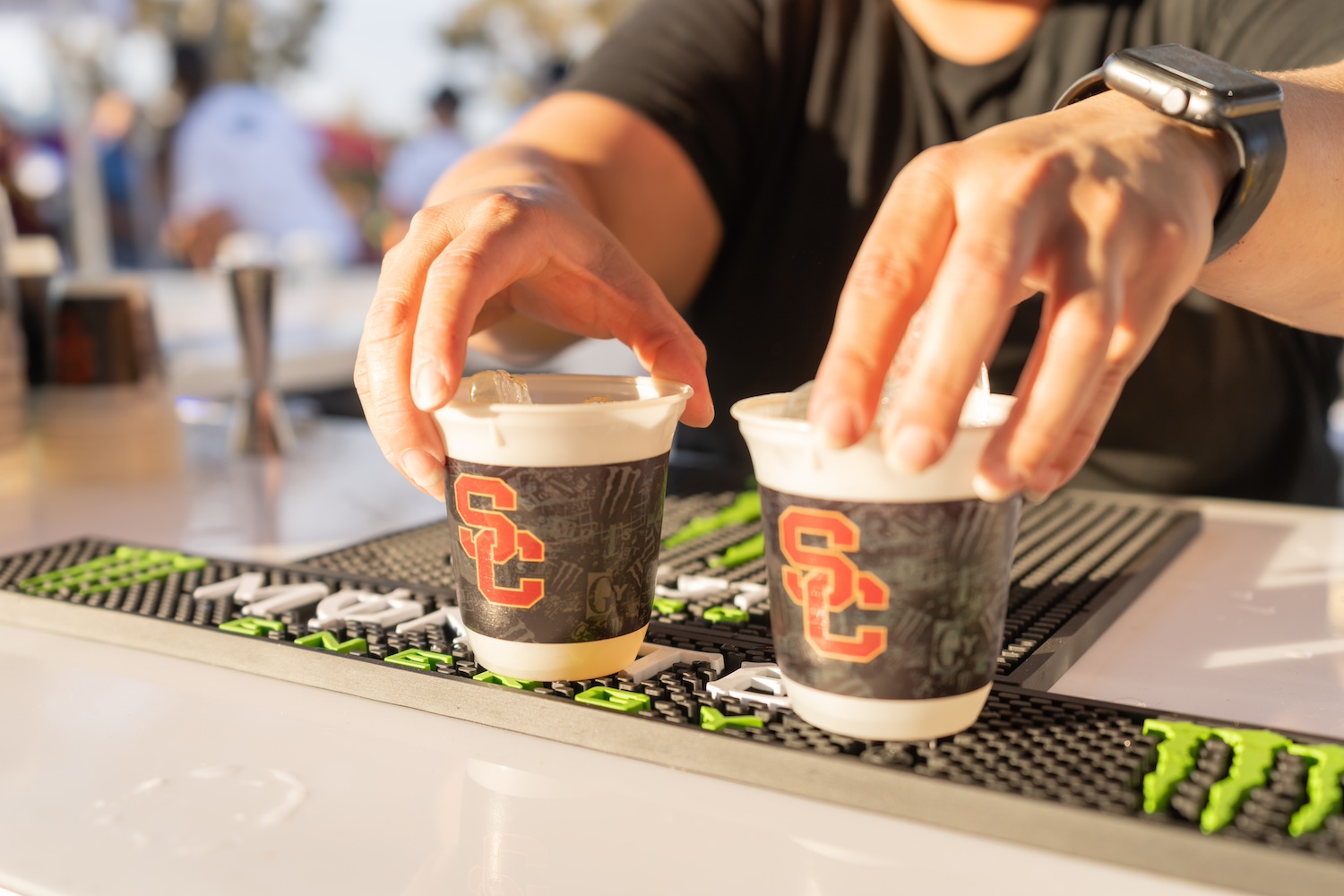
Better for All cups were used at University of Southern California’s 2024 zero-waste football game. (Image courtesy of Better for All.)
Most voters in the United States are worried about the impact of microplastics on human health (88 percent) and the Earth’s oceans (89 percent), according to Oceana’s 2025 Plastics Survey. Yet in many circumstances, consumers are often left with little choice but to contribute to the problem if they want to continue doing things they enjoy — such as attending concerts, sporting events and the like, where beverages are often available only in single-use plastics. It can be extremely difficult to cut out disposable plastic cups in these spaces due to the hundreds and sometimes thousands of attendees who want soda, beer and other beverages at the same time. But one startup is offering a product that could help eliminate a lot of the waste at big events.
Better for All makes fully compostable bioplastic cups specifically for stadiums and large events like festivals and weddings. They took center stage at the University of Southern California’s zero-waste football and basketball games over the past two years. Sixty-three percent of waste was kept out of landfills at the university’s 2024 zero-waste basketball game, with Better for All’s cups part of the 383 pounds that were composted instead. They were also the “official cup” at Rock the Ocean’s Tortuga Music Festival, where staff sorted them out for composting.

Bob Meers, Better for All’s CEO, told TriplePundit what he likes best about the cups is they don’t require any change in behavior. “I wanted something that when you discarded it, whenever it was convenient for you to discard it, it would biodegrade in any environment,” he said.
Unlike more commonly used bioplastics that can require industrial composting facilities to break down, Better for All’s cups made from polyhydroxyalkanoates — or PHA, a bioplastic made by microorganisms — will fully biodegrade in home composting systems as well as commercial composting facilities, landfills and even natural spaces such as the ocean or forest floor, Meers said. This makes them ideal for situations where a cup could accidentally be dropped or blown away since they won’t leave microplastics or toxic compounds behind after they break down.
While the cups can be reused multiple times, they are not marketed as reusable because they are not certified to last through 100 uses each, Meers said. But stadiums with washing infrastructure can and do reuse the cups, with each lasting about 10 uses on average, he said.
“We personally have experienced many, many more use cycles. But there's a lot of wear and tear in a stadium setting,” said Raegan Kelly, director of products at Better for All. She reused some of the cups at home for years. “Mostly it's the throwing the cups and putting them on the floor and getting stacked with other kinds of waste and then sorted that causes the breakage [in stadiums].”
Though it may be surprising to some, most early interest in the cups has come from rural areas. “What we found is that in rural America, in farms and ranches, composting has been a way of life,” Meers said, recalling the positive response the cups received at a rodeo in Amarillo, Texas. “We get more take on our product in rural areas because they already have the infrastructure, and they don’t have the trash collecting company pulling up.”

Better for All cups, which are only sold online through the company’s website, won’t be marketed for general home use, Meers said. Instead, they’re specifically meant to be used at weddings, festivals and other gatherings where they can be composted afterward — or taken home by attendees as souvenirs — and event spaces such as stadiums where they can be washed in commercial dishwashers and reused until they crack or get broken.
The company’s design earned a 2024 Best Technology Innovation award from Beverage Digest, and it’s building up new venue partnerships across the U.S. That includes joining the GOAL sustainability network founded by the venue company Oak View Group — which makes Better for All a vendor option for famed U.S. stadiums like Fenway Park, Wrigley Field and Dodger Stadium. Better for All also served as official cup sponsor of this year’s FestForums — the largest annual conference for festival organizers — putting the brand in front of the folks behind major festivals like SXSW, Sundance, Coachella and more, so you may soon see these compostable options at more major events in 2025 and beyond.

Riya Anne Polcastro is an author, photographer and adventurer based out of Baja California Sur, México. She enjoys writing just about anything, from gritty fiction to business and environmental issues. She is especially interested in how sustainability can be harnessed to encourage economic and environmental equity between the Global South and North. One day she hopes to travel the world with nothing but a backpack and her trusty laptop.














